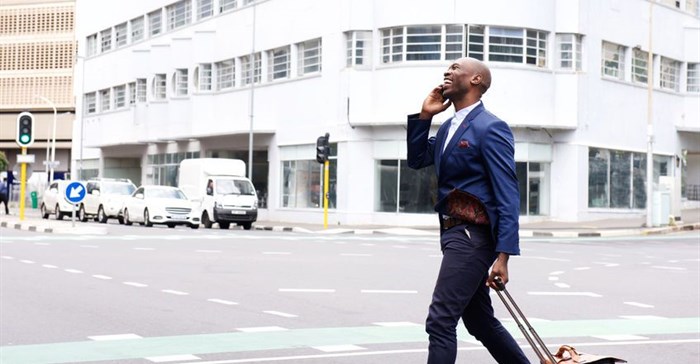
Top stories

Marketing & MediaWarner Bros. was “nice to have” but not at any price, says Netflix
Karabo Ledwaba 11 hours




Logistics & TransportMaersk reroutes sailings around Africa amid Red Sea constraints
Louise Rasmussen 4 hours

More news



















Data shared by Flight Centre Travel Group’s Corporate Traveller shows that four of the top five international airports worldwide for corporate traffic ex-South Africa are in Africa.
Based on booking data made this year, London is still the top international business destination for South African travellers. However, that is the only destination outside of Africa to make it onto the top-five list.
• The Hosea Kutako International Airport in Windhoek, Namibia;
• The Sir Seretse Khama International Airport in Gaborone, Botswana.
• Fourth is the Harry Mwanga Nkumbula International Airport in Livingstone, Zambia, and
• The Robert Gabriel Mugabe International Airport in Harare, Zimbabwe.
Although the opportunities for trade in Africa are limitless, business travellers face delayed flights and struggles associated with a lack of proper infrastructure.
During a recent assembly organised by the Airlines Association of Southern Africa (AASA), Paul Steele, Senior Vice President, Member & External Relations at the International Air Transport Association (IATA) highlighted challenges such as inadequate infrastructure, a competitive cost base, and said facilitated travel was still lacking in key markets.
AASA Chief Executive Chris Zweigenthal urged those in power and associated with the aviation value chain to work together to keep air travel on the continent safe, to contain and reduce costs, and create friendly visa and immigration regimes.
The lack of road infrastructure across Africa is a considerable challenge. Elisa Bremand, Security Manager West Africa, remarks that some of the biggest risks overlooked by travellers tend to be transport related. Road accidents are one of the top five causes of medical evacuations by International SOS.

Bremand says: "Checking the road status, the local rules and driving conditions and whether self-driving is recommended in one’s destination is essential to mitigate such risks. In some locations, we also recommend visitors to arrange their transport with a trusted local contact or a vetted provider."
SOS International also advises travellers to stay abreast of political developments in the country they are visiting. Bremand maintains: "While social unrest does not usually pose a direct risk to visitors, it can seriously disrupt one’s travels."
Simmy Micheli, Sales and Marketing Manager for Travel Insurance Consultants (TIC), says health concerns are another challenge for Africa’s travellers in general. Although it is mainly a concern for travellers to the more rural areas, gastric ailments as a result of poor water quality are commonplace. Mosquito-borne diseases are another severe risk in Africa, and Malaria affects more than 200 million people.
Micheli explains that most rural African areas have no modern healthcare facilities. Patients in these areas usually rely either on traditional medicine or travel great distances for care. Often, hospitals and clinics don't offer specialist care services, and travellers might need to be transported to more appropriated facilities in another country - even in Europe.
New technology is helping to mitigate a number of these risks when visitors travel in Africa, providing real-time, accurate information.
Receiving specific, automated medical and/or security travel advisory after booking, for instance, can prepare travellers. During a trip, having access to a mobile-friendly service is also crucial. Travellers should also be able to rely upon services with push notifications and receive personalised and relevant information across their favourite channels.
The Corporate Traveller chatbot SAM (Smart Assistant for Mobile) offers a corporate Duty of Care feature that geographically focused on travellers’ whereabouts and will send real-time alerts when someone might be affected by an event based on their location.
Sam sends alerts that are strictly location-based on the current itinerary and prompts travellers to report they are safe via a push notification. One tap later, the travel manager knows the status of each traveller.
For travellers in Africa, first-hand destination knowledge and advice can be hard to find. However, with the Sam Community feature, each Sam user can now share their travel tips and encounters with fellow travellers. Sam presents this information to the traveller based on their context, so only relevant pieces of data are shown.
Although travelling into Africa still comes with certain risks, emerging technology trends can help companies and travellers overcome these challenges, with improved emergency monitoring, better location tracking and streamlined communications moving the continent forward.
